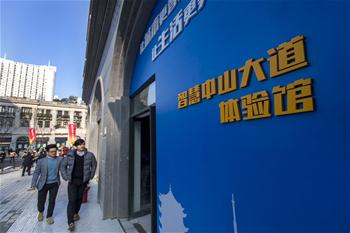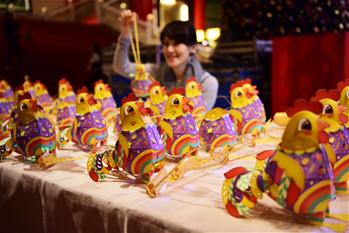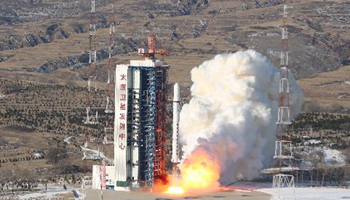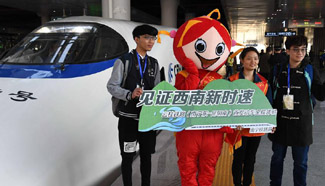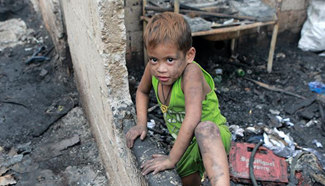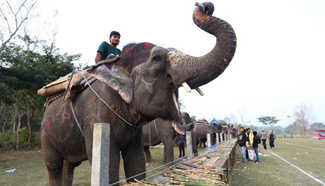THE MAKING OF THE CORE
The term "core leader" goes back only a few decades. Late Chinese leader Deng Xiaoping, considered the architect of China's reform and opening-up drive, coined the term in the late 1980s.
While the terming of "core leader" is relatively new, the practice of having a core in the CPC is not.
In its first 14 years of existence, the CPC did not have a full-fledged leadership core. As a result, its revolutionary cause suffered repeated setbacks, and the Party was almost on the verge of dissolution.
The 1935 Zunyi Conference, during which late Chinese leader Mao Zedong established his authority within the CPC Central Committee and the military, was a turning point. Another 14 years later, the CPC came to power in the newly founded People's Republic of China.
Mao himself was known to have flouted an ancient tale in the Spring and Autumn period (770 B.C.-476 B.C.) of divided leadership about a single state with three rulers. "We must establish a core in the leadership," he was quoted as saying in 1940s.
For his part, Deng Xiaoping also pointed out the weakness of a Party leadership without a core. One cannot rely on a collective leadership without a core, he famously said in the 1980s.
According to Deng, Mao was the core of the first generation of CPC central leadership, whereas he himself was that of the second generation.
After Deng, Jiang Zemin, who served as general secretary of the CPC Central Committee from 1989 to 2002, was the "core" of the third generation of CPC central leadership.
Chinese experts today note that the "core" leader is not a self-appointed title, nor is the leading party member automatically regarded as such.
"Xi's core status in the CPC Central Committee and the entire Party was established through his leadership in advancing the Party's great causes," said Dai Yanjun, deputy director of the Party-building department at the Party School of the CPC Central Committee.
"The choice of Xi as the core leader of the CPC and its Central Committee is the choice of the whole Party and the Chinese people as well as one of the times," he said.
When Xi Jinping took the reins in 2012, the CPC had already delivered a longer period of sustained rapid growth than any government had achieved anywhere in human history.
But the need to rebalance the economy meant fresh impetus to sustain the economic miracle has to be found.
Although the economy continued to grow at an enviable rate, downward pressure was already growing and the pace was slowing. The Chinese economy grew 6.9 percent year on year in 2015, the slowest in a quarter of a century, weighed down by a property market downturn, falling trade and weak factory activity.
In the meantime, corruption, a widening wealth gap and problems caused by unbalanced development also added to the challenges, as reforms entered a "deep water zone."
To counter these problems, Xi has promised a long list of "supply-side structural reform," including defusing a debt bomb, reducing pollution and phasing out obsolete industrial facilities.
He has also launched the most thorough anti-corruption campaign in decades, giving sharper teeth to the party's discipline agency, and worked to upgrade the Party's state governance.
"Much of what Xi has done so far had been unachievable in the past," said Yan Shuhan, chief expert on Marxist studies with the Party School of the CPC Central Committee.
"In a sense, the endorsement of Xi as the 'core leader' at the sixth plenum is just a formal recognition of a fact," Yan said.
But analysts said the most important thing to examine is not what the core title means nor why Xi was conferred with it. Rather, it is what Xi, and the Party at large, could do with that title.
Speaking on the 95th founding anniversary of the CPC in Beijing in July, Xi said the past 60-odd years have shown that the Party received "good scores in the test of history."
But the test is not over yet, he warned.
China is in the middle of a hard, long-term struggle to transform the economy, clean up the Party and streamline the military, said Yan.
"The country is closer to its goal of great rejuvenation than at any point in history," he said, adding that identifying Xi as the core is in the fundamental interests of the nation.
His words were echoed by Ruan Zongze, executive deputy president of the China Institute of International Studies, who also said Xi's new title is meant to reinforce China's push through reform measures.
"This will not only benefit China, but the world as well," he said.




